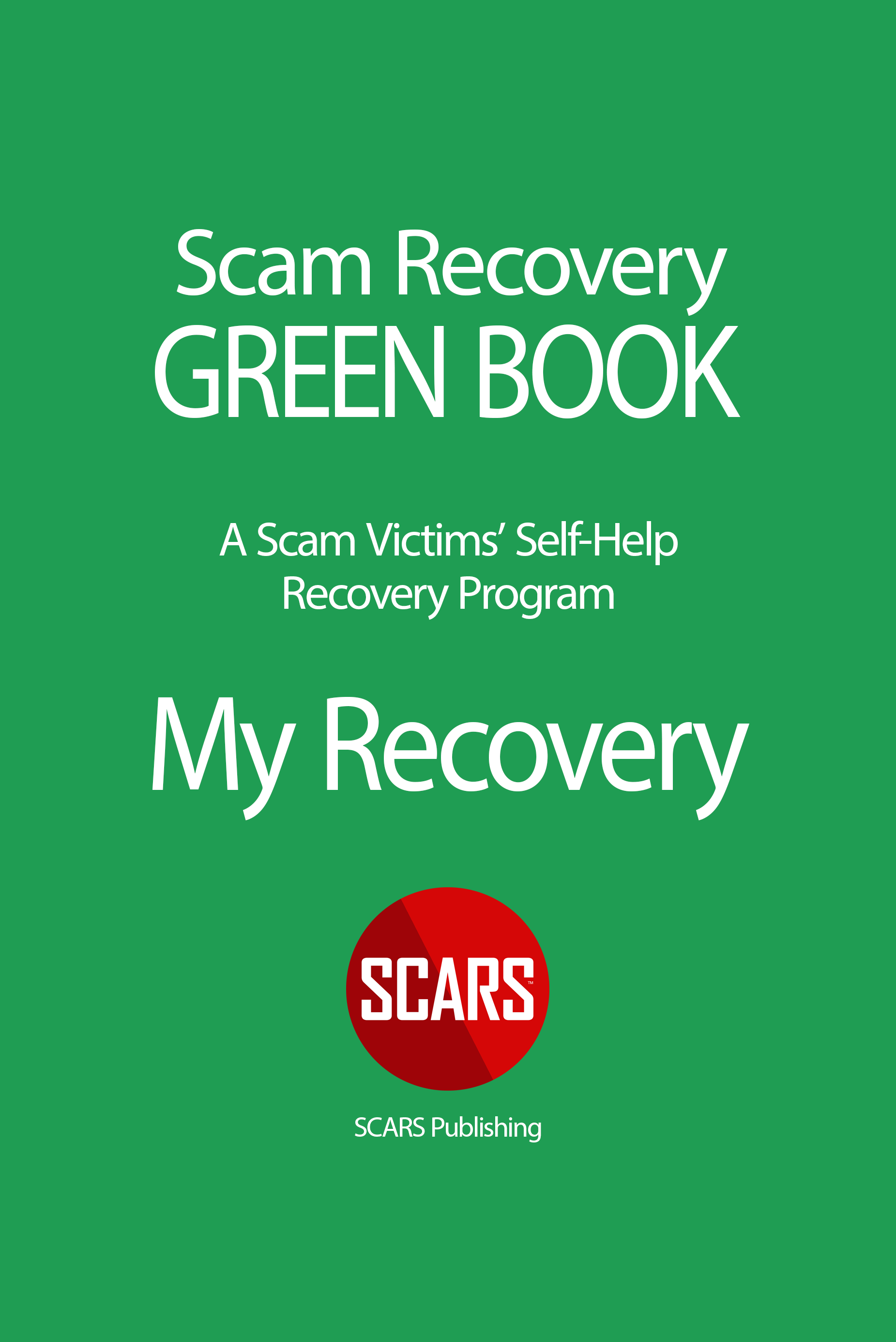
SCARS Institute’s Encyclopedia of Scams™ Published Continuously for 25 Years

Author:
• Tim McGuinness, Ph.D., DFin, MCPO, MAnth – Anthropologist, Scientist, Director of the Society of Citizens Against Relationship Scams Inc.
Originally Published: 2018 – Article Updated: 2024
Article Abstract
Sextortion, the coercive act of blackmail using intimate images or videos obtained through webcam interactions or online exchanges, targets individuals of all ages, with a significant impact on teenagers. Criminals, often posing as someone else online, lure victims into performing sexual acts, recording them, and threatening to share the footage with their contacts unless paid.
This crime, facilitated by organized groups, can lead to extreme emotional distress, and tragically, has resulted in suicides. Victims are advised not to comply with demands, preserve evidence, block communication, and report the crime to authorities.
Support is available for victims, with resources provided for both parents and peers to recognize and address sextortion cases promptly. Ultimately, awareness, vigilance, and swift action are crucial in combatting this pervasive digital threat.
More Sextortion Information is available here: Sextortion Victims Support – The Essentials – 2024 (scamvictimssupport.org)
What Is Sextortion?
Basically, Sextortion Is Webcam Or Intimate Photos Or Videos Blackmail!
Many people use webcams for flirting and cybersex, or send intimate photos or videos of themselves to online strangers – but sometimes people you meet online aren’t who they say they are.
Criminals might befriend victims online by using a fake identity and then persuade them to perform sexual acts in front of their webcam, often by using an attractive woman to entice the victim to participate. These women may have been coerced into these actions using financial incentives or threats.
These webcam videos are recorded by the criminals who then threaten to share the images with the victims’ friends and family. This can make the victims feel extremely ashamed and embarrassed and, tragically, here in the UK at least four young men have taken their own lives after being targeted in this way.
Both men and women can be victims of this crime, either by being blackmailed or by being coerced into carrying out sexual acts.
The best way to stop yourself from becoming a victim is to be very careful about who you befriend online, especially if you’re considering sharing anything intimate with them.
Who Is Behind This Crime
The evidence shows that organized crime groups – mostly based overseas - are behind this crime. For them, it’s a low-risk way to make money and they can reach many victims easily online. Victims are often worried about reporting these offenses to the police because they are embarrassed.
A Note About Labeling!
We often use the term ‘scam victim’ in our articles, but this is a convenience to help those searching for information in search engines like Google. It is just a convenience and has no deeper meaning. If you have come through such an experience, YOU are a Survivor! It was not your fault. You are not alone! Axios!
Are You A Victim Of Sextortion?
GET HELP. REPORT IT. NOW!
- This Is A Serious Crime, and Police WILL Understand.
- It is a form of Blackmail!
- You need to report it.
Police are not as good with romance and other kinds of scams, but they understand extortion and treat it seriously. Police are well-trained to help in these cases, they WILL help you.
If someone threatens you with sharing sexual photos or videos of you unless you send them more or pay them money, #SayNO!
Follow these steps
- Don’t share more.
- Don’t pay anything.
- If they ask for more photos or videos, don’t send any more.
- If you have already paid, check if the money has been collected.
- If yes, take note of where it was collected from.
- If no, cancel the payment – the sooner the better.
Many victims who have paid have continued to get more demands for money. In some cases, even when the demands have been met the offenders will still go on to post explicit videos.
The only way it will end is to bring in the police!
For more information on Sextortion read this: How to Survive a Sextortion Scam
Look for help. You are not alone.
- If you are a Teen or a Child, this is NOT YOUR FAULT!
- Look for an adult that you trust or for your friends’ support.
- Don’t face this problem on your own. Consider talking to one or more of the following – they will be able to support you:
- Your Family: parents, brothers, sisters, or any other relatives. Yes, they may freak out, but they will get over that quickly and help you get this solved.
- Your Local Police – they are really good when it comes to things like this!
- Your Friends (your friends may not know anything or think they know more than they really do).
- Friends’ parents, teachers, carers, counselors, coaches, or leaders of an activity group.
- A helpline – even if you are NOT thinking about suicide, you can call a Crisis Hotline – they know how to help in these situations.
- Preserve evidence. Don’t delete anything.
- Save the messages exchanged, including any photos/videos that were sent.
- Take screenshots of all your communications.
- Write down all the details provided by the offenders, for example:
- The details of the online communication platform (name, user ID, URL)
- The payment site suggested and where to send the money.
- Stop communication. Block the person.
- Once you have all the evidence saved, block the person.
- Check your other chats and social media accounts in case the offender tries to contact you via one of them.
- Report it to the social media channel. Use the online reporting process. You can request to have inappropriate photos/ videos of yourself removed from social media platforms and search engines.
- Deactivate your social media account, instead of deleting it (if possible). (There is a way to do this on Facebook in your Profile Setting)
This way, the data is preserved and will assist the police in obtaining more evidence. You can reactivate it afterward, ensuring your online memories are not lost forever.
Report It To The Police
Contact your local police. They will take your case seriously, and deal with it in confidence, without judging you. Ask them for victim support, they will be able to help.
Just call the Police Emergency number, say this is not an emergency as ask to speak with a Police Officer. Ask them if they can send an Officer to where you are that you need to report a crime, but do not want to talk about it on the phone. You can ask for a Female Officer if you prefer, sometimes that makes it easier to talk about what happened.
REMEMBER, THIS IS CRIME AGAINST YOU
YOU ARE NOT AT FAULT. GOT IT?
Advice For Friends & Peers
Is your friend being extorted or coerced online?
Your friend might think there is no escape and will probably feel trapped. This is not true. There is help out there and you can help them find it:
- Talk to them about how they are feeling. Listen to them. Advise them to talk to SOMEONE (if they are a Teen or a Child – to an adult) they trust.
- Advise them to report it to the police. They will not be in trouble, they are a victim of a crime.
- Whoever is doing this to your friend is committing a crime.
- You must Report it so that the police can investigate the case and arrest the criminal. Even if your friend will not report it, it is your duty to do it for them. In the end, they will understand why you tried to help them.
Advice For Parents, Teachers, And Professionals
For Children/Teen Victims
If your child, your child’s friend, or someone that trusts you, is potentially a victim of online sexual coercion or extortion, there are organizations that can help. Start with your local police.
For Adult Victims
If your friend or family member that trusts you, is potentially a victim of online sexual coercion or extortion, there are organizations that can help. Start with your local police. Find more resources here: Sextortion Victims Support – The Essentials – 2024 (scamvictimssupport.org)
WHAT TO DO?
Assess the risks:
What did they share?
- Was it a photo, video, or personal information when chatting?
- Are they embarrassed by the content? If so, why?
- Could the information be used to locate them?
- Was it shared with someone they have never met face-to-face?
Find out what they know about the person.
- Ask if they have felt threatened or uncomfortable in any way.
- If they have been asked to share sexual photos or videos, or they are being extorted for money, this is illegal and the crime should be reported to the police as soon as possible.
- Was it shared with friends and then the extortion happened?
- Is your friend or family member worried about what they will do with the information?
Never worry that someone else will get in trouble. If this is not an organized criminal, then you are helping the other person avoid more serious problems in the future if they keep doing this.
How was it shared?
Explore how it began. Ask how the contact started, in which platform were they first approached, and how have they been communicating with the person. Find out how many people might be able to see the content the child has shared.
In The Case Of Children Or Teen Victims
Take Control. Offer your support.
The child is a victim and needs to be comforted and reassured.
TELL THEM THIS IS NOT THEIR FAULT
THEY MADE A MISTAKE
BUT THEY ARE NOT IN TROUBLE
THEY WILL NOT GO TO JAIL
The extortionists may have told them incredible things and threats. You need to tell the child that NONE of that was true, it was just a threat, and you are going to get help and people to protect them (the police)
Follow the advice mentioned in the article and take steps to make sure they don’t become a victim again. (Our advice is to change your child’s phone to a Flip Phone – as dumb as you can find!)
In the case of children or teens, if a schoolmate is using personal information online to bully the child, you should speak to their school urgently. If the pressure comes from a peer outside of the school environment (sports activities, a neighbor, etc.), you should approach the police and let them contact the relevant responsible adult, for instance, a trainer or parent.
If you are in a position of trust, encourage the child to disclose the information to their parents and offer to be a facilitator or “go-between”. If possible, try to get someone else to chaperon or sit in with you and make notes.
Tips to encourage the child to talk:
- Make sure they know they can trust you.
- Give them time and space and listen attentively to what they say.
- Don’t judge.
- Ask them if there is something, in particular, they need you to do.
- Let them know that if they would rather talk to someone else, that’s fine, and help them to arrange that conversation.
If You Become Aware Of A Child Being Sextorted
Remember, if this is NOT your child you have a RESPONSIBILITY TO BRING IN THE POLICE. If the child does NOT want you to tell the parents, then don’t – let the police do it. BUT YOU MUST BRING THE POLICE INTO THE DISCUSSION WITH THE CHILD BY LAW.
More Information About Sextortion
- Sextortion Victims Support – The Essentials – 2024 (scamvictimssupport.org)
- FBI Says Sextortion Activity on the Rise – PODCAST [AUDIO] [TAMBIEN EN ESPAÑOL]
- Avoid Teen Sextortion [VIDEO]
- Sextortion Combined With Phishing Scams
- Sextortion Is A Killer For Young Girls
- OFFICIAL FBI PODCAST – Sextortion Case
- OFFICIAL U.S. Government Document: Joint Services Sextortion Brochure
- Man Warning Internet Daters After ‘Sextortion’ Scam
- Sextortion Scam Warning As Fraudsters Claim To Have Secretly Filmed You Watching Porn Online
- Scammer Urban Legends: Chapter 5 – Scammer Threats & Blackmail
What To Do If You’re A Victim Of Sextortion
If someone threatens to share explicit images of you unless you pay them money:
Don’t Panic
Contact your local police and internet service provider immediately. The police will take your case seriously, will deal with it in confidence, and will not judge you for being in this situation.
Don’t Communicate Further With The Criminals
Take screenshots of all your communication. Suspend your Facebook account (but don’t delete it) and use the online reporting process to report the matter to Skype, YouTube, etc. to have any video blocked and to set up an alert in case the video resurfaces. Deactivating the Facebook account temporarily rather than shutting it down will mean the data are preserved and will help police to collect evidence. The account can also be reactivated at any time so your online memories are not lost forever. Also, keep an eye on all the accounts which you might have linked in case the criminals try to contact you via one of those.
Don’t Pay
Many victims who have paid have continued to get more demands for higher amounts of money. In some cases, even when the demands have been met the offenders will still go on to post explicit videos. If you have already paid, check to see if the money has been collected. If it has, and if you are able, then make a note of where it was collected from. If it hasn’t, then you can cancel the payment – and the sooner you do that the better.
Preserve Evidence
Make a note of all details provided by the offenders, for example; the Skype name (particularly the Skype ID), the Facebook URL; the Western Union or MoneyGram Money Transfer Control Number (MTCN); any photos/videos that were sent, etc. Be aware that the scammer’s Skype name is different to their Skype ID, and it’s the ID details that police will need. To get that, right-click on their profile, select ‘View Profile’ and then look for the name shown in blue rather than the one above it in black. It’ll be next to the word ’Skype’ and will have no spaces in it. DO NOT DELETE ANY CORRESPONDENCE.
Remember that you’re the victim of organized criminals – you’re not alone and confidential support is available. You can get through this.
We strongly recommend that you also read this: Sextortion Victims Support – The Essentials – 2024 (scamvictimssupport.org)
Statement About Victim Blaming
SCARS Institute articles examine different aspects of the scam victim experience, as well as those who may have been secondary victims. This work focuses on understanding victimization through the science of victimology, including common psychological and behavioral responses. The purpose is to help victims and survivors understand why these crimes occurred, reduce shame and self-blame, strengthen recovery programs and victim opportunities, and lower the risk of future victimization.
At times, these discussions may sound uncomfortable, overwhelming, or may be mistaken for blame. They are not. Scam victims are never blamed. Our goal is to explain the mechanisms of deception and the human responses that scammers exploit, and the processes that occur after the scam ends, so victims can better understand what happened to them and why it felt convincing at the time, and what the path looks like going forward.
Articles that address the psychology, neurology, physiology, and other characteristics of scams and the victim experience recognize that all people share cognitive and emotional traits that can be manipulated under the right conditions. These characteristics are not flaws. They are normal human functions that criminals deliberately exploit. Victims typically have little awareness of these mechanisms while a scam is unfolding and a very limited ability to control them. Awareness often comes only after the harm has occurred.
By explaining these processes, these articles help victims make sense of their experiences, understand common post-scam reactions, and identify ways to protect themselves moving forward. This knowledge supports recovery by replacing confusion and self-blame with clarity, context, and self-compassion.
Additional educational material on these topics is available at ScamPsychology.org – ScamsNOW.com and other SCARS Institute websites.
Psychology Disclaimer:
All articles about psychology and the human brain on this website are for information & education only
The information provided in this article is intended for educational and self-help purposes only and should not be construed as a substitute for professional therapy or counseling.
While any self-help techniques outlined herein may be beneficial for scam victims seeking to recover from their experience and move towards recovery, it is important to consult with a qualified mental health professional before initiating any course of action. Each individual’s experience and needs are unique, and what works for one person may not be suitable for another.
Additionally, any approach may not be appropriate for individuals with certain pre-existing mental health conditions or trauma histories. It is advisable to seek guidance from a licensed therapist or counselor who can provide personalized support, guidance, and treatment tailored to your specific needs.
If you are experiencing significant distress or emotional difficulties related to a scam or other traumatic event, please consult your doctor or mental health provider for appropriate care and support.
Also read our SCARS Institute Statement about Professional Care for Scam Victims – click here to go to our ScamsNOW.com website.
If you are in crisis, feeling desperate, or in despair please call 988 or your local crisis hotline.
-/ 30 /-
What do you think about this?
Please share your thoughts in a comment below!
Table of Contents
- Sextortion employs non-physical forms of coercion to extort sexual favors from the victim or uses intimate photos or videos to extort money from the victims!
- Article Abstract
- What Is Sextortion?
- Basically, Sextortion Is Webcam Or Intimate Photos Or Videos Blackmail!
- Who Is Behind This Crime
- A Note About Labeling!
- Are You A Victim Of Sextortion?
- GET HELP. REPORT IT. NOW!
- Look for help. You are not alone.
- Report It To The Police
- REMEMBER, THIS IS CRIME AGAINST YOU
YOU ARE NOT AT FAULT. GOT IT? - Advice For Friends & Peers
- Advice For Parents, Teachers, And Professionals
For Children/Teen Victims - For Adult Victims
- WHAT TO DO?
- In The Case Of Children Or Teen Victims
- If You Become Aware Of A Child Being Sextorted
- More Information About Sextortion
- Don’t Panic
- Don’t Communicate Further With The Criminals
- Don’t Pay
- Preserve Evidence
- Remember that you’re the victim of organized criminals – you’re not alone and confidential support is available. You can get through this.
LEAVE A COMMENT?
Recent Comments
On Other Articles
- Arwyn Lautenschlager on Love Bombing And How Romance Scam Victims Are Forced To Feel: “I was love bombed to the point that I would do just about anything for the scammer(s). I was told…” Feb 11, 14:24
- on Dani Daniels (Kira Lee Orsag): Another Scammer’s Favorite: “You provide a valuable service! I wish more people knew about it!” Feb 10, 15:05
- on Danielle Delaunay/Danielle Genevieve – Stolen Identity/Stolen Photos – Impersonation Victim UPDATED 2024: “We highly recommend that you simply turn away form the scam and scammers, and focus on the development of a…” Feb 4, 19:47
- on The Art Of Deception: The Fundamental Principals Of Successful Deceptions – 2024: “I experienced many of the deceptive tactics that romance scammers use. I was told various stories of hardship and why…” Feb 4, 15:27
- on Danielle Delaunay/Danielle Genevieve – Stolen Identity/Stolen Photos – Impersonation Victim UPDATED 2024: “Yes, I’m in that exact situation also. “Danielle” has seriously scammed me for 3 years now. “She” (he) doesn’t know…” Feb 4, 14:58
- on An Essay on Justice and Money Recovery – 2026: “you are so right I accidentally clicked on online justice I signed an agreement for 12k upfront but cd only…” Feb 3, 08:16
- on The SCARS Institute Top 50 Celebrity Impersonation Scams – 2025: “Quora has had visits from scammers pretending to be Keanu Reeves and Paul McCartney in 2025 and 2026.” Jan 27, 17:45
- on Scam Victims Should Limit Their Exposure To Scam News & Scammer Photos: “I used to look at scammers photos all the time; however, I don’t feel the need to do it anymore.…” Jan 26, 23:19
- on After A Scam, No One Can Tell You How You Will React: “This article was very informative, my scams happened 5 years ago; however, l do remember several of those emotions and/or…” Jan 23, 17:17
- on Situational Awareness and How Trauma Makes Scam Victims Less Safe – 2024: “I need to be more observant and I am practicing situational awareness. I’m saving this article to remind me of…” Jan 21, 22:55
ARTICLE META
Important Information for New Scam Victims
- Please visit www.ScamVictimsSupport.org – a SCARS Website for New Scam Victims & Sextortion Victims
- Enroll in FREE SCARS Scam Survivor’s School now at www.SCARSeducation.org
- Please visit www.ScamPsychology.org – to more fully understand the psychological concepts involved in scams and scam victim recovery
If you are looking for local trauma counselors please visit counseling.AgainstScams.org or join SCARS for our counseling/therapy benefit: membership.AgainstScams.org
If you need to speak with someone now, you can dial 988 or find phone numbers for crisis hotlines all around the world here: www.opencounseling.com/suicide-hotlines
A Note About Labeling!
We often use the term ‘scam victim’ in our articles, but this is a convenience to help those searching for information in search engines like Google. It is just a convenience and has no deeper meaning. If you have come through such an experience, YOU are a Survivor! It was not your fault. You are not alone! Axios!
A Question of Trust
At the SCARS Institute, we invite you to do your own research on the topics we speak about and publish, Our team investigates the subject being discussed, especially when it comes to understanding the scam victims-survivors experience. You can do Google searches but in many cases, you will have to wade through scientific papers and studies. However, remember that biases and perspectives matter and influence the outcome. Regardless, we encourage you to explore these topics as thoroughly as you can for your own awareness.
Statement About Victim Blaming
SCARS Institute articles examine different aspects of the scam victim experience, as well as those who may have been secondary victims. This work focuses on understanding victimization through the science of victimology, including common psychological and behavioral responses. The purpose is to help victims and survivors understand why these crimes occurred, reduce shame and self-blame, strengthen recovery programs and victim opportunities, and lower the risk of future victimization.
At times, these discussions may sound uncomfortable, overwhelming, or may be mistaken for blame. They are not. Scam victims are never blamed. Our goal is to explain the mechanisms of deception and the human responses that scammers exploit, and the processes that occur after the scam ends, so victims can better understand what happened to them and why it felt convincing at the time, and what the path looks like going forward.
Articles that address the psychology, neurology, physiology, and other characteristics of scams and the victim experience recognize that all people share cognitive and emotional traits that can be manipulated under the right conditions. These characteristics are not flaws. They are normal human functions that criminals deliberately exploit. Victims typically have little awareness of these mechanisms while a scam is unfolding and a very limited ability to control them. Awareness often comes only after the harm has occurred.
By explaining these processes, these articles help victims make sense of their experiences, understand common post-scam reactions, and identify ways to protect themselves moving forward. This knowledge supports recovery by replacing confusion and self-blame with clarity, context, and self-compassion.
Additional educational material on these topics is available at ScamPsychology.org – ScamsNOW.com and other SCARS Institute websites.
Psychology Disclaimer:
All articles about psychology and the human brain on this website are for information & education only
The information provided in this article is intended for educational and self-help purposes only and should not be construed as a substitute for professional therapy or counseling.
While any self-help techniques outlined herein may be beneficial for scam victims seeking to recover from their experience and move towards recovery, it is important to consult with a qualified mental health professional before initiating any course of action. Each individual’s experience and needs are unique, and what works for one person may not be suitable for another.
Additionally, any approach may not be appropriate for individuals with certain pre-existing mental health conditions or trauma histories. It is advisable to seek guidance from a licensed therapist or counselor who can provide personalized support, guidance, and treatment tailored to your specific needs.
If you are experiencing significant distress or emotional difficulties related to a scam or other traumatic event, please consult your doctor or mental health provider for appropriate care and support.
Also read our SCARS Institute Statement about Professional Care for Scam Victims – click here to go to our ScamsNOW.com website.





















Thank you for your comment. You may receive an email to follow up. We never share your data with marketers.